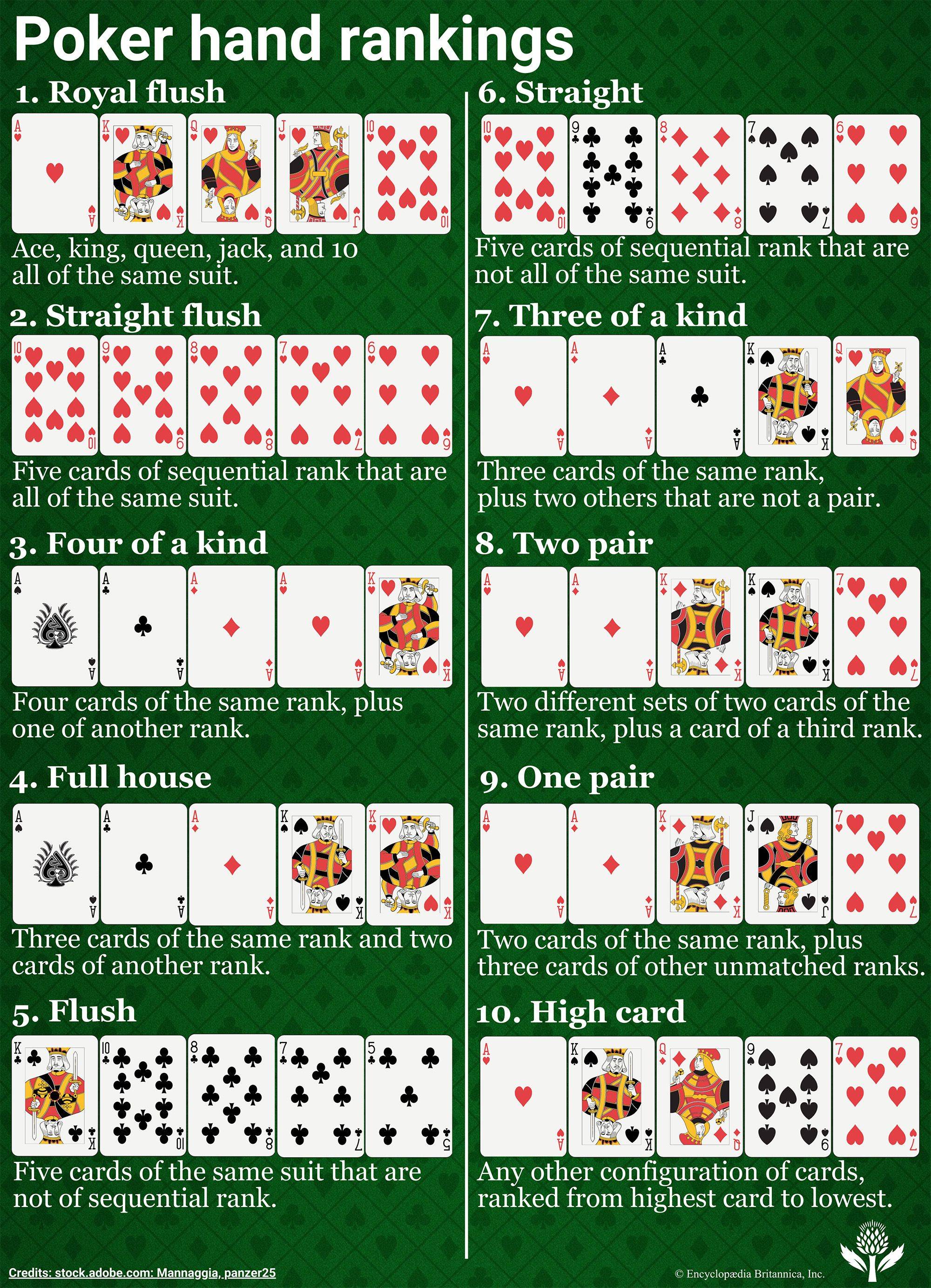
Poker is a card game in which players wager money against each other and the dealer. It can be played with any number of players, but is most commonly played with seven or more people. The goal of the game is to win the pot, which is the sum total of all bets made during a single deal. This can be accomplished by having the highest-ranking poker hand, or by bluffing and winning when players holding superior hands call your bets.
Poker has a long history, and it is believed to have originated in China and then spread to Europe. It is a game of chance, but skill plays an important role as well. A good poker player is able to read the other players at the table and make adjustments to their own strategy accordingly. They are also able to use their knowledge of odds and probability to make wise bets.
A good poker player is also able to assess the strength of their own hand and to know when it is best to fold. This is because a strong hand can be beaten by a bad board, and a weak hand can be improved by drawing additional cards. It is also important for a poker player to know how much to raise or call, and when to bluff.
The key to improving your poker game is practice. You can start by playing with friends or with online opponents. It is a good idea to start with a small stake, and work your way up to a higher one as you gain experience. You should always play poker with a positive attitude and never lose faith in your abilities.
You should also read as many poker books as possible to improve your skills. However, avoid reading books that give very specific advice (such as “Every time you have AK do this”). The game is constantly evolving, and it is impossible to predict what will happen in future hands.
Another important aspect of poker is position. You should be in late position when you are playing, as this will give you more bluffing opportunities and allow you to make better value bets. It is also a good idea to keep a journal of your plays, so you can analyze and learn from your mistakes.
The final important aspect of poker is understanding the rules and etiquette of the game. This includes knowing how to tip the dealers and other players, and being polite at all times. It is also important to remember that poker is a mentally intensive game, and you should only play it when you are in the mood for it. If you are feeling frustrated, tired, or angry, you should quit the game immediately. This will save you a lot of money in the long run!